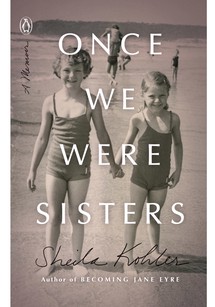Once We Were Sisters
By Sheila Kohler
256 pages;
Penguin Books
At 37, Kohler received a devastating phone call: Her only
sibling, Maxine, had been killed halfway around the world in Johannesburg. The "accident"
was highly suspicious. Maxine's violent husband, Carl, was at the wheel when he
ran their car off the road. The police suspected attempted murder-suicide, but
no one could prove wrongdoing. Carl survived and walked free. "I have
tried again and again to imagine her last moments," Kohler writes, "as
though, if I could put them into words, they would not happen." Consumed
by grief, rage and guilt—for not rescuing her sister from an abusive
marriage—Kohler spent decades asking what-ifs and whys, interrogating
the way they were raised. The sisters grew up financially privileged in South
Africa, yet their lives were marked by loss: the early death of their distant
father, the alcoholic withdrawal of their mother, the bloody injustice that
scarred their homeland. Educated abroad, both sisters married young, to
accomplished men. Sheila's husband flagrantly cheated; Maxine's husband beat
her. Neither woman dared to stand up for herself. After Maxine's death, Sheila
went on to a happy second marriage and a distinguished literary career. It's
fitting that the book is written in the present tense, because her sister is
forever with her. Their relationship changes shape yet lingers, as do the
important questions about women and violence.
— Dawn Raffel


